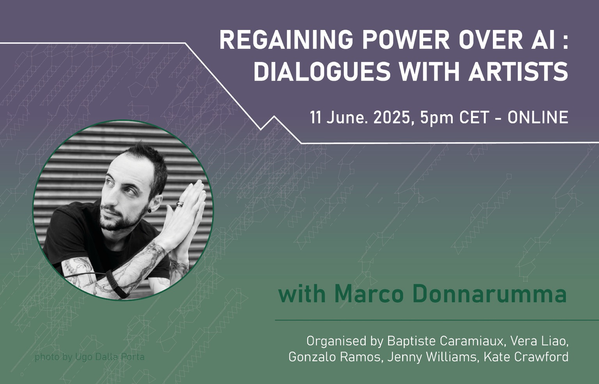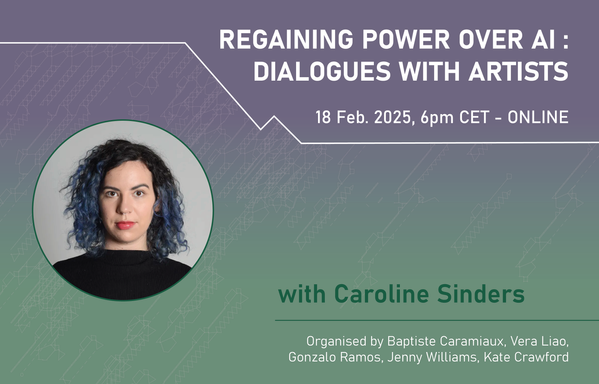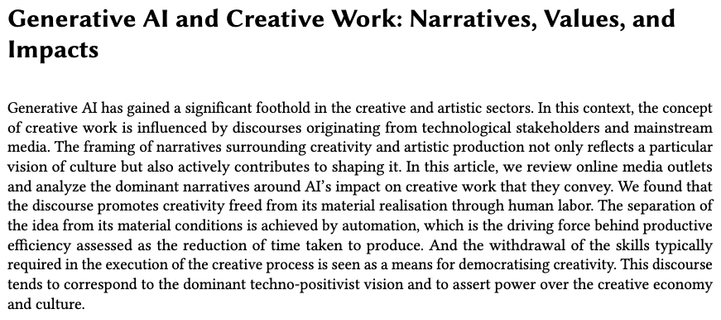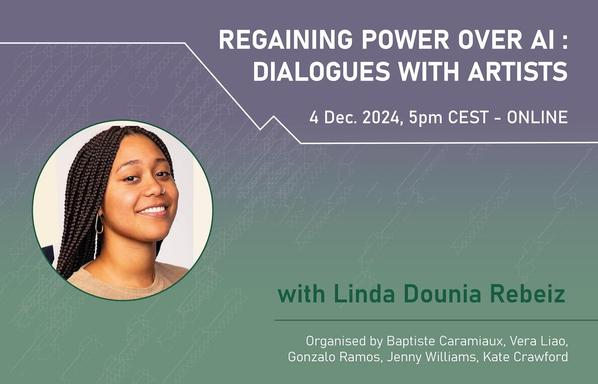♦️ Our next #AI & #Society Salon is soon 🎙️ Join us on 11 June 17:00 CET for a Salon with Marco Donnarumma @Body_sound_machine, sound and performance artist, researcher.
We will discuss human body, tech and power.
➡️ Register here: https://www.eventbrite.com/e/regaining-power-over-ai-dialogue-with-marco-donnarumma-tickets-1394404183449?aff=oddtdtcreator
Salon organized with @qveraliao @Katecrawford Gonzalo Ramos and Jenny Williams.
This is the 5th episode of a series of salons on #AI, #Art, #society check out them here: https://regainingpoweroverai.org/docs/salons/



